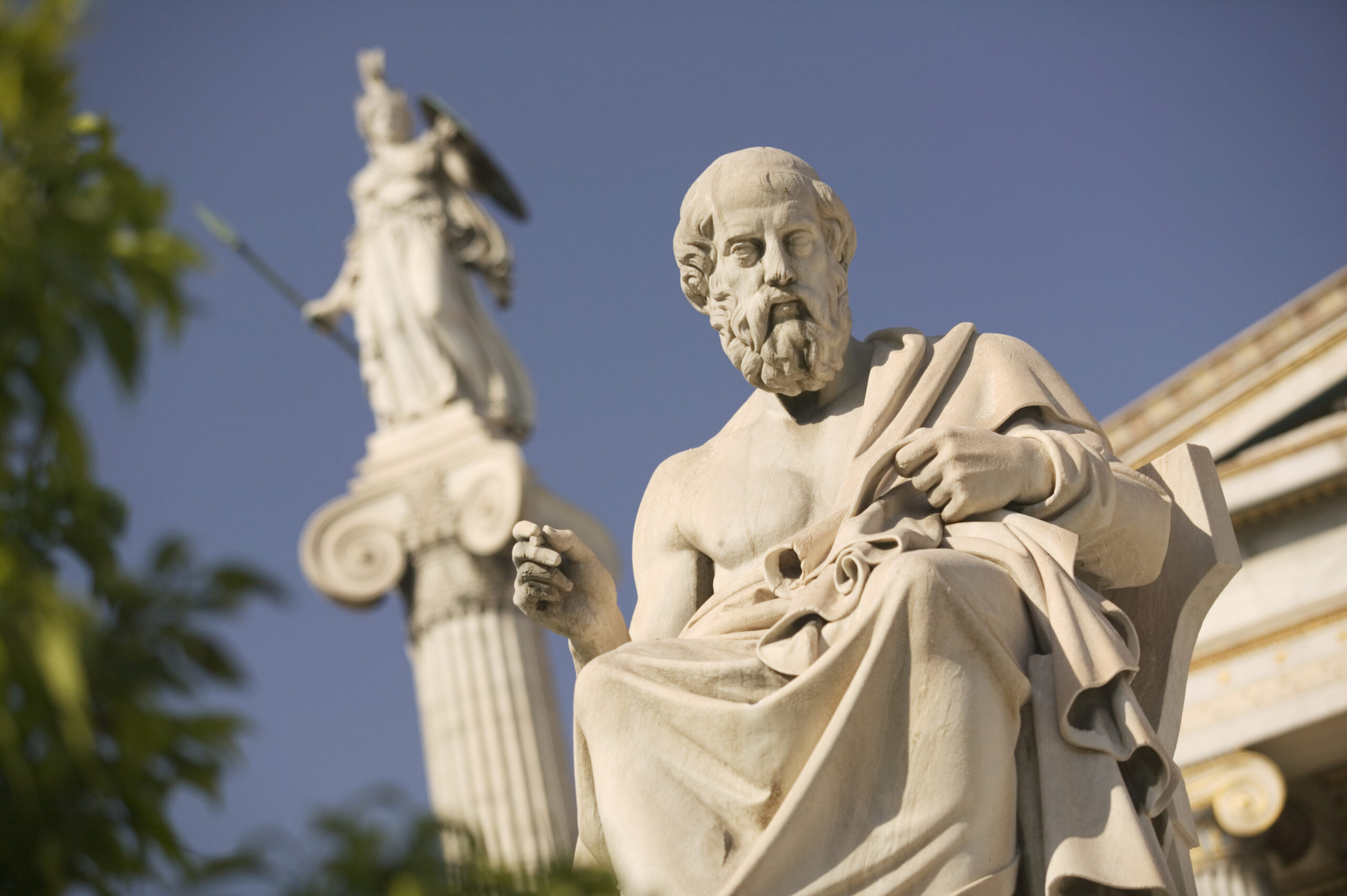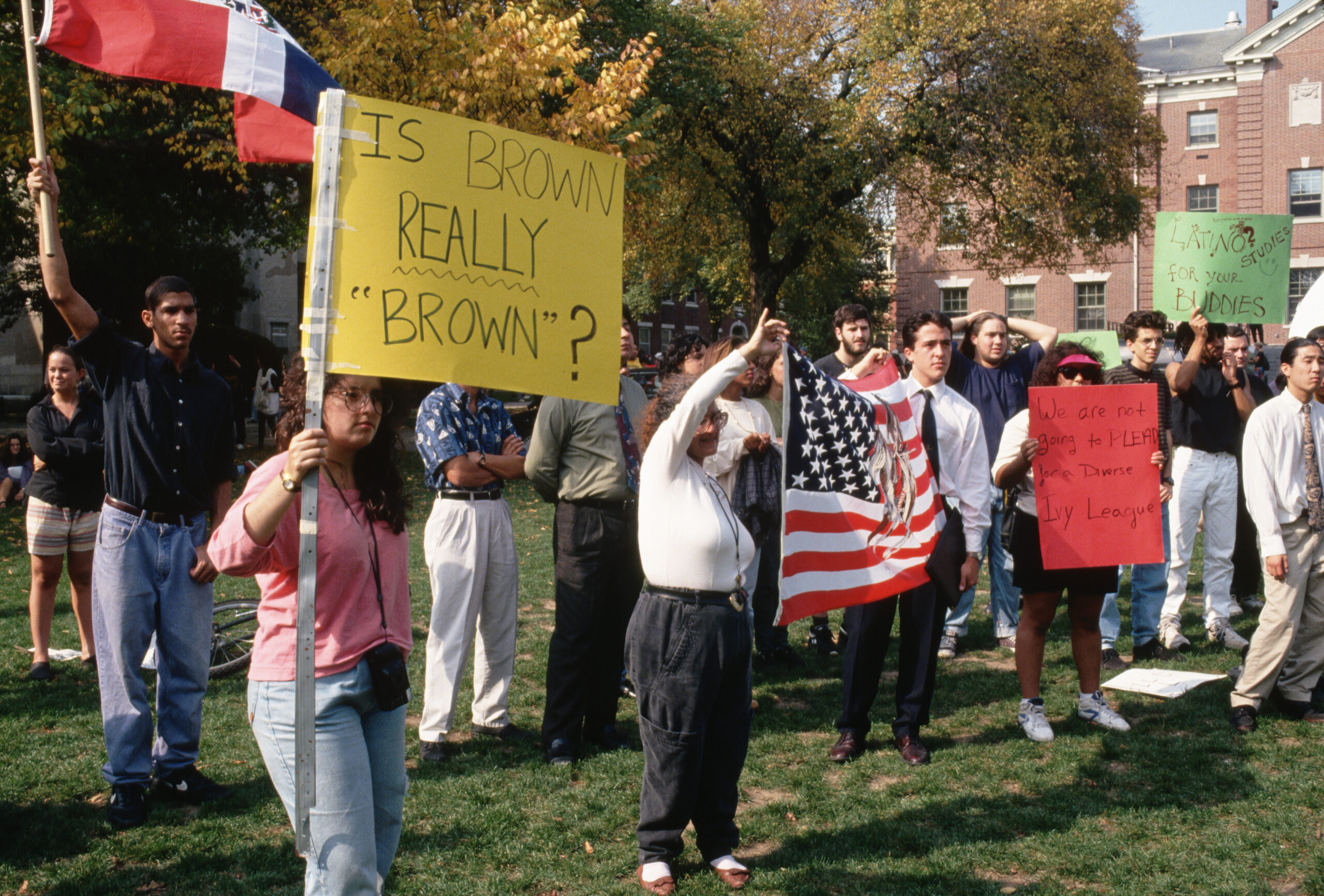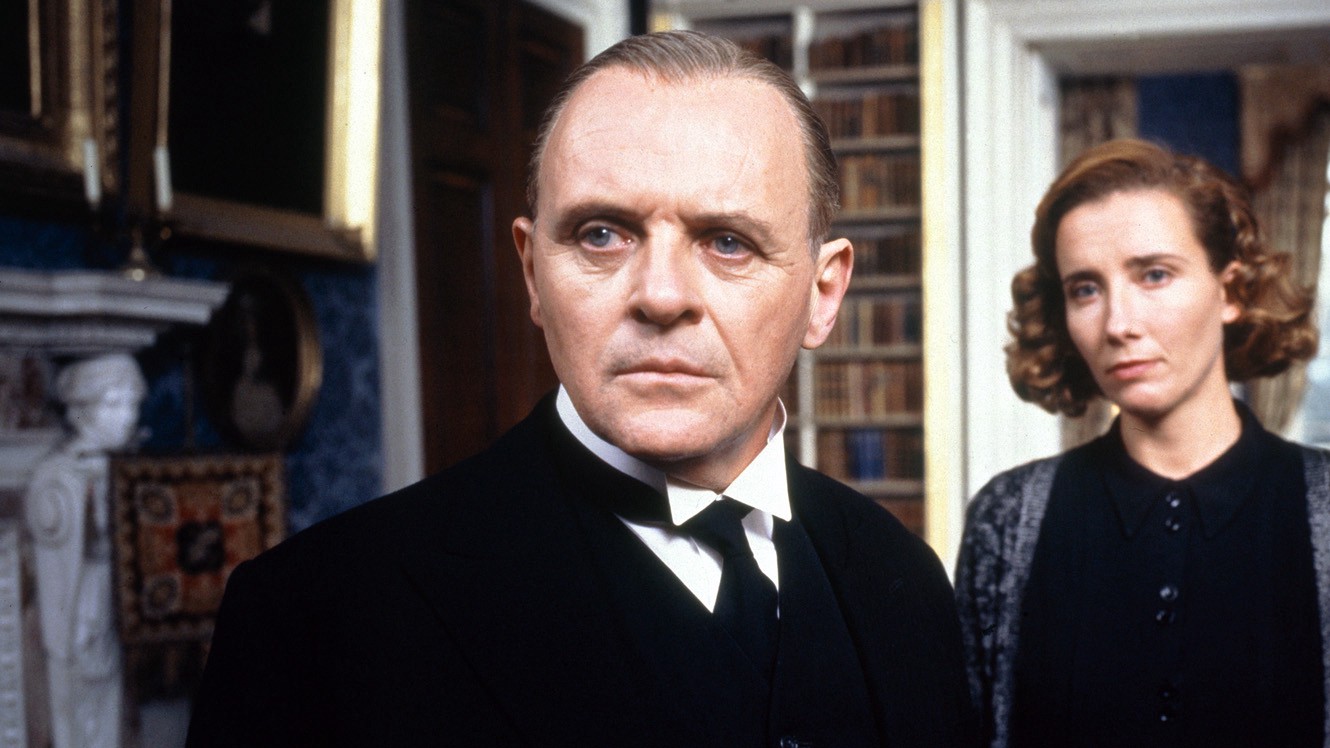A particularly discerning twentieth-century political philosopher, Leo Strauss, insisted that it is “better to understand the low in light of the high” rather than the other way around. That is the approach adopted by Graham James McAleer and Alexander S. Rosenthal-Pubul in this rich, learned, and invigorating book. Their aim is both high and serious: to establish the ennobling links between conservatism, Christian humanism, and classical wisdom at their wisest and most humane. In this laudable aim, in this welcome synthesis, they succeed admirably.
For a book on conservatism, McAleer and Rosenthal-Pubul are remarkably attentive to “what is going on”—to the debates that animate what is left of “the republic of letters” and public-spirited philosophy, theology, and political theory today. Theirs is a dialectical approach, first limned negatively by what they reject: not only a contemporary liberalism that reduces liberty to self-will and subjectivism but also a traditionalism that eschews the goods inherent in the liberal order. Nor do they reduce conservatism to classical liberalism, as many in the Anglo-American world do. Theirs, moreover, is a modern conservatism, addressing the moral crisis coextensive with late modernity but without rejecting modernity tout court. As conservatives and Christian humanists, they value the truth inherent in the liberal affirmation of human equality and common humanity. But for them, the goods of the liberal polity, not to mention the goods of the soul, will never be defined or maintained by freedom without purpose and self-limitation. Liberalism, for all its virtues, cannot begin to adequately answer the question of the nature of the human being, who is said to be free and equal. And in its decayed late-modern manifestations, progressive liberalism refuses to even ask the question. It is content—nay, it aggressively counters truth-seeking with negation and repudiation, rejecting “the perennial philosophy” and even the most minimal respect for “the wisdom of the ancestors.” The original liberal promise of liberty and equality has thus to a large degree culminated in nihilism and moral debasement. This is the dire situation in which we find ourselves and that the authors of this book seek to address.
Our authors thus present conservatism—high conservatism, the conservatism of the larger Western tradition—as a via media between the late modern rejection of ordered freedom, of the natural moral law, of respect for family, tradition, and religion, and a hyper-traditionalist or reactionary turn to “privileged particular attachments.” Too often, those who espouse the latter forget that, as our authors put it, “the circle of sympathy ultimately extends universally” in the form of binding moral obligations that reach far beyond kinship and even the civic community. To be sure, the local—and the full array of particular—attachments have inherent dignity and must be defended against the levelling and homogenizing tendencies of doctrinaire egalitarianism. But salutary tradition is never an end-in-itself. It must respect the “moral consensus” of civilized human beings, a phrase taken from Aurel Kolnai, the Hungarian-born anti-totalitarian moral and political philosopher who is so admired by the authors of this book, and prudently navigate between the wisdom and dignity of the ancestral, of the tried and true, and the universal principles that ultimately ground common life. The cardinal virtues—courage, temperance, justice, and prudence (or practical wisdom)—belong to human beings as human beings, as does the humanizing quest, inherent in ordinary experience but pursued more systematically through philosophy, theology, and literature, for the simply true, good, and beautiful. High conservatism therefore refuses to succumb either to the exclusionary charm of the particular or to the tyrannizing allure of global cosmopolitanism. The latter, carried to its logical conclusion, leads to what Kant so suggestively called “soulless despotism” and that we today experience in manifold ways.
Following the lead of Roger Scruton, Pierre Manent, and older forms of Catholic thought, McAleer and Rosenthal-Pubul defend the nation as a just and legitimate political form without conflating nationalism and conservatism. They are particularly critical of the neo-pagan Right with its preference for ethnonationalism and its disdain for properly civic attachments. For them, there is no “end of history” with an unproblematic liberalism as the final form of the human adventure. At the same time, they will not abide the “illiberal” repudiation of representative government or commercial society either—the authors generally side with Adam Smith and David Hume against those traditionalists and leftists who identify commercial society with luxury, moral corruption, injustice, and human degradation.
Most generally, the West has largely lost sight of “what it stands for or what it stands against,” as McAleer and Rosenthal-Pubul state in their preface. The crucial nexus connecting territorial membership with rule of law and self-government, emphasized so well by the late, great English conservative political philosopher and man of letters Roger Scruton, is today under systematic assault. More deeply, we have largely lost an appreciation of our dependence on a natural order of things—and a beneficent Providence—above the human will. Our unfounded substitute faith in inexorable historical “progress” and in human perfectibility played a major role in the genesis of totalitarian violence and mendacity on a mass scale in the twentieth century. As a civilization, however, we did not learn the lessons that the totalitarian episode should have taught us. Today, our smug and unphilosophical social science, with its deterministic emphasis on “social” causation, has next to no place for the civic and moral agency of human persons. McAleer and Rosenthal-Pubul are particularly good at articulating the intrinsic links between conservatism, Christian humanism, and the personalist affirmation of free will and a human soul that, while embodied, transcends material and social causation.
In its judicious mix of classical and Christian wisdom, humanism is, in the words of our authors, the “master idea of Western civilization.” Such humanism is utterly realistic about the reality of human imperfection and evil while simultaneously stressing human freedom, natural moral law, and conscience as both essential to human nature and informing human agency. In this connection, McAleer and Rosenthal-Pubul write incisively about the crucial role that classical humane letters and education in self-mastery play in ordering and elevating the human soul. Already in Xenophon’s Memorabilia, Socrates had pointed out that a human being cannot be free or wise if he or she is a slave to the passions. Judaism and Christianity taught the great truth that every human being is made in “the image and likeness of God,” a claim deepened by the very fact of the Incarnation, of God becoming flesh and blood. The great works of Greek and Latin wisdom—those of Plato, Aristotle, Seneca, Plutarch, and Cicero, among others—taught civilized human beings that dignity is also acquired or earned when we human beings live lives informed by moral and intellectual virtue. Classical Christianity would add that even free and virtuous human beings are “fallen” human beings, who must open themselves to the grace of God. Conversion, repentance, and forgiveness thus became invaluable treasures of the Western moral and spiritual patrimony. To jettison them is to jettison essential elements of our humanity. These themes luminously come together in what our authors call the “Benedict synthesis,” the unforced melding of the deepest Christian insights about the “logos” at the heart of the created order, a “purified” Hellenism in search of wisdom about human nature and the nature of the “Whole,” and modern liberty that refuses to bend to the positivistic and scientistic reduction of reason to narrow instrumental rationality. The late Pope Benedict XVI, the architect of this synthesis in its most satisfactory form, is thus one of the heroes of the book.
Avoiding angelism and reductive materialism, high conservatism has much to teach us about the meaning of what it means to be a human being worthy of civilized liberty. Authority should never be confused with authoritarianism, and liberty, equality, and human dignity must not lose sight of the nobility that allows human beings to achieve true “height” as well as “depth,” in the words of Kolnai.
Drawing on the Russian philosopher Nicholas Berdyaev (who was not exactly a conservative but who was profoundly anti-totalitarian), the authors of this work brilliantly uncover the Achilles’ heel of an exclusively modern humanism. As Berdyaev eloquently argued in The Meaning of History, if modern humanism initially exalts man, it ultimately debases him “by ceasing to regard him as a being of a higher and divine origin.” Limiltess human self-affirmation leads inexorably to “self-enslavement,” in Kolnai’s phrase from his seminal 1949 essay “Privilege and Liberty.” Divorced from the deeper insights of Christian civilization, it leads, in Berdyaev’s words, to man’s “own perdition.” Liberalism proffers many legitimate aims and aspirations, including an enhanced concern for the weak and marginal (although this concern is presented in a more balanced and spiritually fulsome way in the Christian tradition). But liberalism fails miserably in providing “an adequate ontological ground for its humanism.” It needs the salutary correction provided by conservatism, in no small part to prevent what is best in liberalism from perishing from this earth.
In the last lecture he delivered at the Collège de France in 1978, the great French anti-totalitarian political thinker Raymond Aron suggested that, while every human being should be free to find his or her own path in life, none have the right to invent their own tablets of good and evil. Such were the near final words of a liberal open to the best conservative thought. This wise and valuable book explains exactly why that is the case.
This article was originally published by RealClearBooks and made available via RealClearWire and is presented here with thanks for the permission to republish at Modern Age. It is excerpted from the Foreword to Graham James McAleer and Alexander S. Rosenthal-Pubul’s new book The Wisdom of Our Ancestors: Conservative Humanism and the Western Tradition. —ed.















